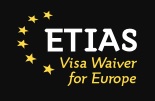
Travelling to Europe for an extended period has got a whole lot more complicated – you’d better hope you have the stamina to stay the course.
Travelling frequently to Europe? There are more hurdles to overcome than in the Grand National. This year has seen many changes to the way we fly, from undergoing Covid screening before travel to pre-booking tests for your arrival home. Slightly lost in this has been what has changed for those of us who are frequent business and leisure travellers to Europe who are not European citizens.
Since March 2021, the only way to overcome the 90-day maximum stay in 180 days rule has been to apply for a long-stay Schengen visa. I’ve just attempted the tortuous course and can report that there are more jumps to clear than for two circuits of Aintree.
Before you attempt it, I should tell you that most European countries have delegated the visa process (but not the wider issue) to a company called TLS Contact that in the UK has centres in London, Manchester and Edinburgh. It’s a big operation – the London office, in Wandsworth, has up to 30 counters that are open on specific days for particular Schengen countries.
TOUR DE FRANCE
For my first hurdle, with the intention of spending some time in France, I applied online to the French visa service and completed a four-page long-stay application (france-visas.gouv.fr). I was then directed to TLS Contact for hurdle two and completed a form of similar length asking many of the same questions. On pushing send I was asked to make an appointment at one of its offices but, this being March, it was closed owing to Covid restrictions. So I almost fell at the third fence. A few days later, I was advised that if I didn’t appear for interview within 20 days of my application the information would be deleted and I would have to start again. I wondered if I had the stamina.
I sent several messages asking if my application would be rejected but received no clear indication of whether I would have to resubmit my details. I decided to risk it and in early April tried for an appointment mid-month. Success. Now all I had to do was assemble the documentation.
And here is the list. Passport, photos, French visa form, TLS Contact form, three months of UK bank statements and payslips, birth certificate, marriage certificate (no death certificate – although they were sending me in that direction), proof of travel, proof of accommodation for an initial period (plus proof of the funds to pay for budget accommodation for the entire stay), and international medical insurance for more than six months.
My day arrived and I turned up ten minutes early, worrying that my file had probably been deleted because of the 20-day rule. Happily, all appeared still to be in place. I cleared security then entered a vast hall for my preliminary document check. Anyone hard of hearing will not be helped by the huge plastic screen separating you from officialdom. It reminded me of those video calls where people silently shout at you and point to your mute button. If you are unable to easily visit one of their offices, it’s possible to arrange a telephone interview once you have submitted your documents.
My passport was checked and after 15 minutes I was called to a desk. The clerk checked through my documents, mumbled something inaudible through the Perspex and went to speak to someone sat at a bigger desk who looked more important. There was a conference. Several other clerks came over. They all started to look at me. I smiled. Few smiled back. The clerk returned.
“Your wife – she is Irish?” he asked. “Not yet,” I replied. “She’s getting an Irish passport as her father was Irish and she wants to avoid this costly procedure every year. But the Irish passport office isn’t issuing any passports until they get off Covid level 5 in Ireland. Whatever that is.”
“Oh,” he replied, followed by an ominous pause. “Well, if she is a European citizen and you are married to her, you can’t get a visa here.” I’d fallen at the last fence. “So where do I go?” I asked.
“France,” he said. “UK citizens who have spousal relations with European citizens must apply for long-stay visas in the country in which they wish to spend more than 90 days. You might try the local mairie or perhaps the préfecture.”
So I am back to the starting line. At least I’ve saved the £85.57 visa fee and the £31.11 service fee, but who knows what the French will charge and the cost of petrol to get there. Still, provided Ireland eventually issues my wife’s passport, we won’t have to pay for any further documentation for her. She is, of course, as the desk clerk pronounced, “a European citizen” – which I, clearly now, am not.
Derek Picot has been a hotelier for more than 30 years, and is author of Hotel Reservations.













